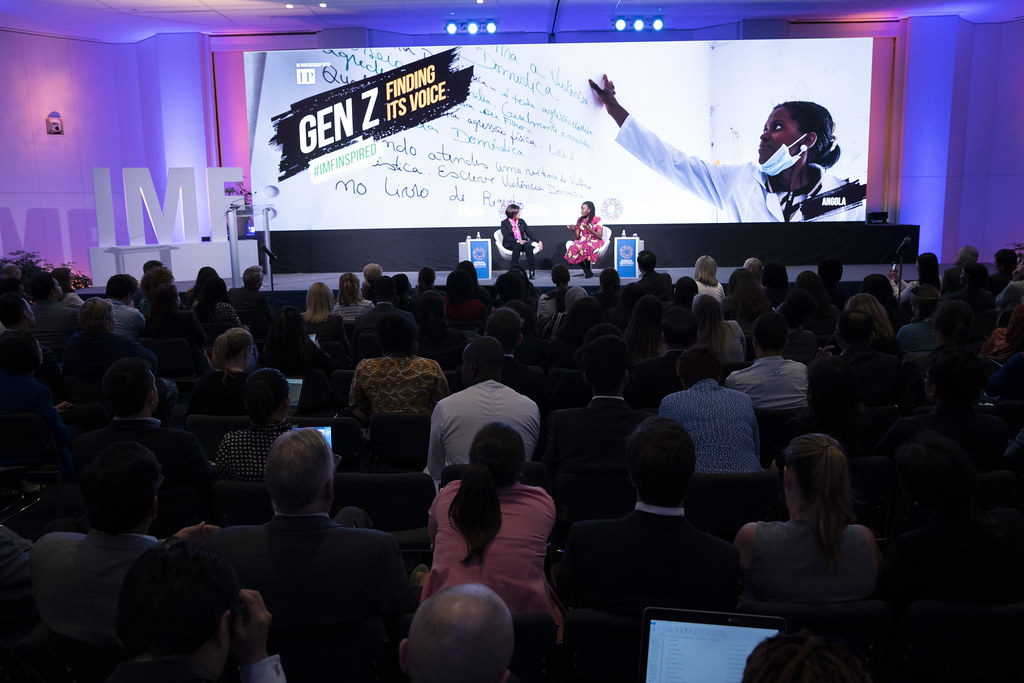Explore More
Generation Z: The Unseen Struggles with Mental Health

The media addresses several issues concerning mental health. We hear of the lack of mental health, funding, medication with side effects and the association between mental health and gun violence, just to name a few. However, there are several gaps that have become overshadowed by the present social issues different organizations are placing emphasis on.
The Generation Z population is of key importance as well. Generation Z is composed of those born within the years of 1996 and 2010. Thus, as we view this population of individuals, they are part of our future societal impact and change. What are we doing to address this problem, prior to the mental health crisis steadily increasing and continuing the cycle of stigma and suffering?


Mental health concerns
Several parents today have children who were born in this era and are concerned with where the future is headed and how their children will be affected. There are a multitude of mental health problems that have gone on for hundreds of years. The stigma attached to mental health and mental illness is a constant battle each day with more organizations joining the fight to address this crisis and break the cycle of fear, silence, and societal stigma. We can see that mental health has no predetermined individual it may affect. Trauma is trauma and once we can understand this as a society, the possibility of the future has more of a chance.
The American Psychological Association addresses this concern by placing not only the light on this generation but also casting the concern on just a few topics that are key components of the stress level affecting their mental health. Anywhere from sexual assault, immigration, and mass shootings are the bare minimum of the many scenarios that the APA addresses. All mental health issues affect anyone and everyone but taking a step back in order to view our future sons, daughters, sisters, brothers, cousins, etc. understanding how this affects them is tremendous in shaping the future and continued suffering of all ages.
Generation Z and the Millennials
Research via the partner of the Gallup and Walton Family Foundation (WFF) is geared towards the issues and challenges the Generation Z population faces. Please be aware that this research as it addresses Generational Research may be debatable. Any research that addresses different generations should be seen not only by the results but viewed by a societal standpoint.
Humans have emotions, perceptions, thoughts and opinions. Although, we may not all agree, the core of the conversation is still mental health. Socioeconomic status, race, gender, politics, cultures, media and so many more all have different viewpoints.
As one research may provide a set of results amongst a certain generation or various segments of society it remains to be controversial and often questionable. Understanding that research conducted amongst different sectors has controlled and uncontrolled variables. In addition, it is comprised of implicit bias that individuals are often unaware they possess this implicit bias, based on factors that affect them based on personal or coverage that depicts mental health as it is viewed, seen, and opinionated. Accepting the truth of individuals’ opinions and perceptions is when we can view research from an objective standpoint.
What is the future of mental health in our society
This leads to not only research but also a society that has been compromised via so many different aspects that are unknown outside the present actions being distributed for the society to be able to have an objective. Humans will always possess a subjective and objective view on all stances within the world whether it is mental health or climate change. Yet, as a significant number of parents, those who have played a pivotal role in shaping the Generation Z population—express significant concern.
In turn, research conducted in 2018 found that the Gen Z population when compared to other populations felt their mental health was on the spectrum between poor and fair. Whereas another unique portion of the Gen Z population has more of a positive view of the future. The shift between generations, research, and population will continue to have a challenging effect in understanding mental health and its overall effects; yet will be able to present some form of data regardless of if viewed as skewed or not. The more information that is provided despite how objective or subjective it may be the end result is the data is there to be seen and the hope is still alive for change.
Do you want to share your story and inspire our readers ? Know that every story is paving the way for a brighter, happier future.




